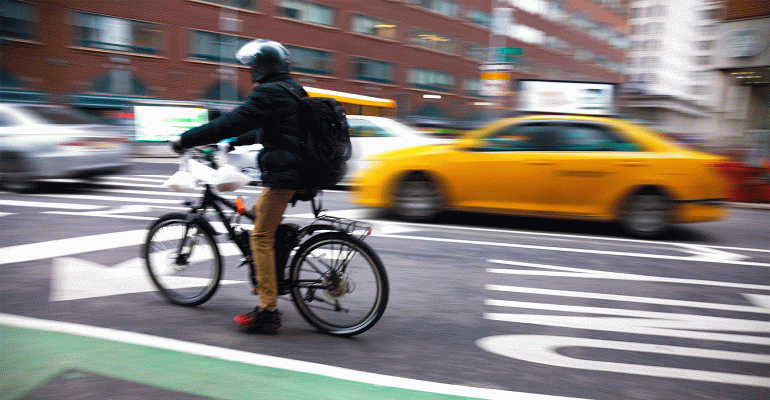The New York City Council has passed a bill designed to help struggling restaurant owners navigate large third-party delivery fees, with provisions that cap third-party delivery commissions at 5% (plus 15% if restaurants are using the third-party delivery drivers) up until and for 90 days after the statewide lockdown has been lifted. A second part of the bill package also prevents third-party delivery companies from “charging restaurants for telephone orders with customers that did not result in an actual transaction during the call” for the 90-day period after the state lockdown ends, though the City Council is working on enacting those protections on a more permanent basis, according to speaker Corey Johnson.
“Delivery fees of 30% are killing my business and so many other small businesses,” Melba Wilson, owner of Melba’s Restaurant in Harlem, New York said during the New York City Council small business committee vote. “When I look at the fact that they’re being capped, that allows me not only to feed my community but to also hopefully bring back some of my employees. […] When you take away a restaurant from the community, you tear down the fabric of that community.”
Violations of the delivery fee caps would be subject to civil penalties of up to $1,000 per restaurant per day, and $500 per restaurant per day for violations of the phone charges. The other parts of the legislation package include similar efforts to help small businesses navigate this new normal, from forgiving sidewalk café franchise fees, to protecting small business owners from personal liability clauses in commercial leases.
The bill — which was supported by New York City mayor Bill de Blasio — was originally debated by the council on April 29, passed by the City Council’s Small Business Committee on the morning of May 13, and passed by the full council in the afternoon.
Unsurprisingly, the new bill aimed at protecting small businesses is not supported by third-party delivery companies. Although Uber Eats did not respond in time for comment, a GrubHub spokesperson called the bill “exactly the wrong proposal.”
“Any arbitrary cap — regardless of the duration — will lower order volume to locally-owned restaurants, increase costs for small business owners, and raise costs on customers. Delivery workers would have fewer work opportunities and lower earnings,” a GrubHub spokesperson said. “We also believe that any cap on fees represents an overstep by local officials and will not withstand a legal challenge.”
Grubhub has reiterated this position in response to other fee caps throughout the country, such as in San Francisco, which implemented a temporary 10% commission cap in April. Grubhub CEO Matt Maloney said during an earnings call earlier in May that when commission fees are capped, they have to raise other fees to pay for fixed costs like paying delivery drivers, which results in less money spent marketing to diners, which in turn results in fewer orders. In short, reducing commission caps, Maloney said, hurts small businesses.
UberEats also agreed that “regulating the commissions that fund our marketplace” could hurt small businesses and delivery people in the long run.
DoorDash — which committed to cutting commission fees for mom and pop restaurants by 50%, plus 0% commissions for new restaurants and for pickups earlier in the crisis — also expressed concern about the new bill.
“We are committed to continuing to support restaurants and couriers, while keeping our services affordable for all New Yorkers, who rely on delivery now more than ever,” David London, DoorDash senior east coast policy lead said in a statement. “We continue to have concerns about an arbitrary permanent cap that would limit our ability to power delivery for local restaurants that may not be able to stay open without it and provide economic opportunity to workers who may not have any other source of income.”
Chicago is taking a different approach to this issue, and has passed a bill that requires third party food delivery companies to provide customers with itemized receipts that break down all of the charges including taxes, delivery fees, and what restaurants are required to pay in commissions. The bill goes into effect on May 22 and is aimed at providing transparency rather than fiscally limiting third-party services.
“We support policy and legislation that help restaurants serve their communities, and a path to reopening these businesses must be the focus,” Grubhub CEO Matt Maloney said, when asked about this route during the company’s earnings call. “These arbitrary disclosure rules, however, will do exactly the opposite of their intent by causing confusion to consumers. These efforts by policymakers risk discouraging people from enjoying restaurant meals safely at home and hurt our efforts to support restaurants.”
For our most up-to-date coverage, visit the coronavirus homepage.
Contact Joanna Fantozzi at [email protected]
Follow her on Twitter: @JoannaFantozzi





